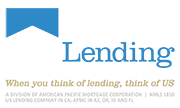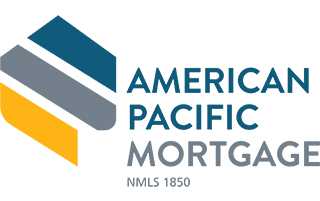Are Refinance Closing Costs Flexible?
Refinancing a mortgage can be a great way to save money, whether it’s short-term  (by reducing what you have to pay on a monthly basis) or long-term (by saving on interest). However, it’s important to consider all of the associated costs before you decide to refinance your existing home mortgage. For example, when you refinance a mortgage, you’ll have to pay closing costs, just like you would when you take out a traditional mortgage. If you don’t do the math properly, you might find that the money you would save on a refinance is, in effect, canceled out by what you owe on closing costs. Fortunately, there is some flexibility when it comes to the closing costs of a mortgage refinance.
(by reducing what you have to pay on a monthly basis) or long-term (by saving on interest). However, it’s important to consider all of the associated costs before you decide to refinance your existing home mortgage. For example, when you refinance a mortgage, you’ll have to pay closing costs, just like you would when you take out a traditional mortgage. If you don’t do the math properly, you might find that the money you would save on a refinance is, in effect, canceled out by what you owe on closing costs. Fortunately, there is some flexibility when it comes to the closing costs of a mortgage refinance.
What are the Refinance Closing Costs?
The closing costs of a loan encompass a number of different fees. The following are the closing costs that a borrower typically has to pay for when refinancing their home loan:
- Escrow fees – Escrow fees are generally charged by the third party who is holding onto a specific amount of money that the borrower must place into escrow. The money in escrow will be withdrawn by the lender to pay for the first insurance premium and tax payments.
- Title fees – Although your old title insurance will remain in effect as long as you are the owner of the house, any new mortgages created through refinancing will not be insured by the lender’s title insurance policy. The lender will require that you buy new title insurance so that they will be recovered, which means you will have to pay for additional title fees. Expect to pay around $700 to $900 in title search and insurance fees.
- Origination fees – Origination fees are the fees that your lender will charge you for processing the loan. These fees include processing, underwriting, document preparation, administrative, and funding fees. Origination fees typically come out to roughly 1 to 2 percent of the loan balance.
- Appraisal fees – You will have to get your home appraised again to ensure that the value of your home hasn’t changed drastically, thereby affecting your refinanced loan. Appraisal fees typically cost between $300 and $400.
- Credit fees – Credit fees are the fees for pulling and reviewing your credit report. These fees range from $25 to $65.
- Taxes – If you have any outstanding or delinquent property taxes on your home, you will be required to pay them before you close on your mortgage refinance by putting what you owe in escrow.
Loan Estimate and Disclosure Statement
Estimating how much you’ll owe on closing costs is important if you’re trying to determine whether a mortgage refinance is even worth it. Fortunately, lenders are legally required to provide a loan estimate if you are applying for a mortgage refinance. A loan estimate will include the estimated closing costs.
No-Closing-Cost Mortgage
No-closing-cost mortgages are a special type of mortgage that eliminates all of the upfront closing costs that you’re typically required to pay. However, these types of loans are meant for borrowers who do not have the money to pay for closing costs. There’s also a catch. Usually, the interest rate will be a lot higher (in many cases, as much as 0.5 percent higher than normal). This means that you’ll end up paying tens of thousands of dollars more in interest over the life of your loan. If you were trying to save money long-term, then a no-closing-cost mortgage is probably not a good option.
Shop Around for Your Lender
Borrowers sometimes have the misconception that in order to refinance their mortgage, they must refinance through the lender that approved their original home loan. However, this is not the case. You can go to a different lender to refinance your current loan. Shop around so that you can compare different rates to get the best deal. Be sure to request quotes from a variety of lenders, including local banks and credit unions.
If you need help finding the right refinancing option for you, be sure to set up an appointment today!
Inquire About a No-Closing-Cost Refinance
Just because a no-closing-cost refinance costs more money on interest, in the long run, doesn’t mean that it’s not a good fit for your specific needs. For example, if you’re trying to refinance a 15-year mortgage after the fifth year because your monthly mortgage payments are too high and you can no longer afford them, then a no-closing-cost refinance might be a good way to reduce those monthly payments without having to pay for closing costs. If this is the case, inquire about no-closing-cost refinance options. Just keep in mind that not all lenders offer such an option.
Loyalty Often Pays
Refinancing through your original lender can be beneficial. While you should still compare quotes, don’t be afraid to negotiate with your original lender using the information you’ve gathered. Many lenders will find ways to lower their fees to keep you as a customer.
Origination Fee
Origination fees should come to no more than 1 to 2 percent of your loan amount. However, it can vary a bit from lender to lender, which is why it’s worth shopping around. Use the lowest quote you’re given to negotiate the origination fee. Some lenders may have high origination fees on top of additional lending fees, such as processing and underwriting fees. These are fees determined by the lender as payment for their services, which means that they have the power to lower them. They may even be willing to waive certain fees, such as the application and processing fees.
Title Insurance
While lenders will recommend a specific insurer for your title insurance, you’re not obligated to buy from that insurer. You can shop around and compare title search and insurance rates from different title companies to help lower your overall closing costs.
Refinance the Closing Costs
If you’ve built up enough equity in your home before refinancing your home loan, then one option you have is to roll the closing costs into the loan itself. This way, instead of paying for them all at once, you’ll just gradually pay down your closing costs as you’re making monthly mortgage payments.
Consider Shortening the Loan Term
By refinancing your mortgage to a shorter loan term, you’ll pay it off much sooner, which means you’ll pay a significantly smaller amount on interest over the long term. If you have the means to do this, taking out a no-closing-cost refinance loan can be a smart option. Even with the higher interest rate, the fact that you’re paying your loan off faster may mean that you’ll still save on interest over the duration of the loan. You’ll just need to do the math to make sure that this is the case.
Your Closing Costs on Refinancing Have Many Variables But You Can Control Them
Paying attention to how much you’ll owe on closing costs when refinancing your mortgage is essential to ensure that it’s worth it to refinance in the first place. However, don’t be discouraged by how much closing costs can be. There are ways to reduce your closing costs, roll them into your mortgage loan, or eliminate them altogether. Just make sure that you shop around and consider all of your options before making a decision.
The views, articles, postings, and other information listed on this website are personal and do not necessarily represent the opinion or the position of American Pacific Mortgage Corporation or US Lending Company.
* For loan examples and more information visit our disclosure page at https://www.uslendingcompany.com/disclosures/





